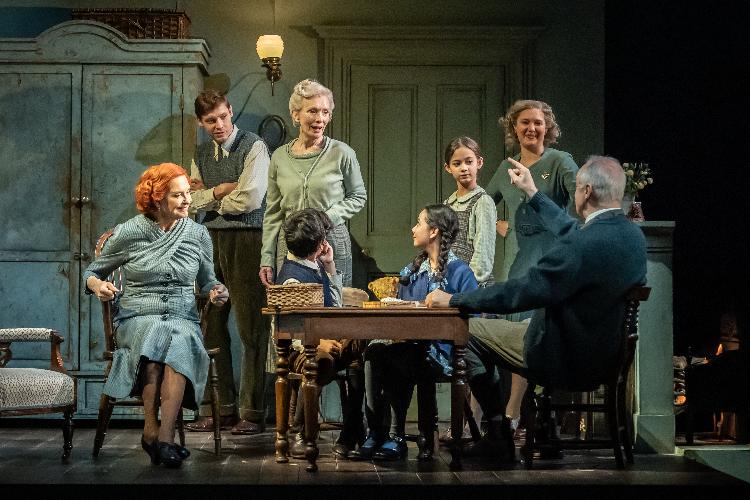Dear Octopus sounds like a cheery title for a play - they are after all very intelligent, beautiful creatures. They also have long, strong tentacles that can reach into nooks, find hidden food and wrap them around prey and refuse to concede defeat. This is Dodie Smith’s octopus - beautiful, seductive even, and intriguingly traps creatures in its grip of suckers and not let go. First performed in 1938, you might expect Dodie Smith’s writing to be dated and out of step with today’s values. But Smith is the author of I Capture the Castle and The Hundred and One Dalmatians, both recently adapted for modern audiences. She shows that the workings of a family are universal and timeless, and the tentacles can reach seamlessly into the subconscious and draw out diehard dynamics, hopes and insecurities about the future that you didn’t know existed, plucked as easily as a character reaches for a cherished sugar bowl.
The Randolph family are together in their manor house to celebrate the golden wedding anniversary of Charles and Dora (a very genuine and motherly performance by Lindsay Duncan). They had seven children but a son died fighting in the Great War and a daughter from illness.
First performed in 1938 just before World War II was declared, it is the minutiae of family resentments that still get the siblings riled up. Just like us - two wars happening not so far away and desperate refugees dying trying to get to this country on inflatable dinghies, it can often be a stolen jumper which really touches a nerve. In 1938, thousands had just died in the 1st World War, yet the realism of a daughter avoiding her family for seven years for fear of admonishment for living with a married man is absolutely believable. The tragic irony? Her parents didn’t particularly mind this supposedly shameful living arrangement, and the tentacles have found her all the way over in Paris, curled around her ankles and brought her home.
The deceased siblings are also main characters, despite not being there. They are mourned and remembered, especially as the son’s wife is present, and the daughter’s daughter. What a strange and common thing it must have been to be attached to a family through marriage, and then suddenly your husband is dead. Here, the widow seems to want to control other family members - perhaps from having lost all control of her own romantic self.
The set designed by Frankie Bradshaw is built on a corkscrew stage and moves seamlessly between the dining room and living room with a small baby’s room next door. In the private intimacy of the fireside, confessions are made while the rest of the family congregate on the other side of the door. Who are we to our families as individuals, it asks, and how does it contrast to the celebratory gatherings where we present our ‘brand’ of family?
The Randolphs are fun and exuberant, and there are plenty of quips that make the entire theatre laugh out loud. But there is something darker brewing underneath and it is this contrast which makes Emily Burns’ production and Dodie Smith’s writing so watchable. Beautifully done.
Dear Octopus is at the National Theatre until 27 March.
Review: Caiti Grove Photo: Marc Brenner

